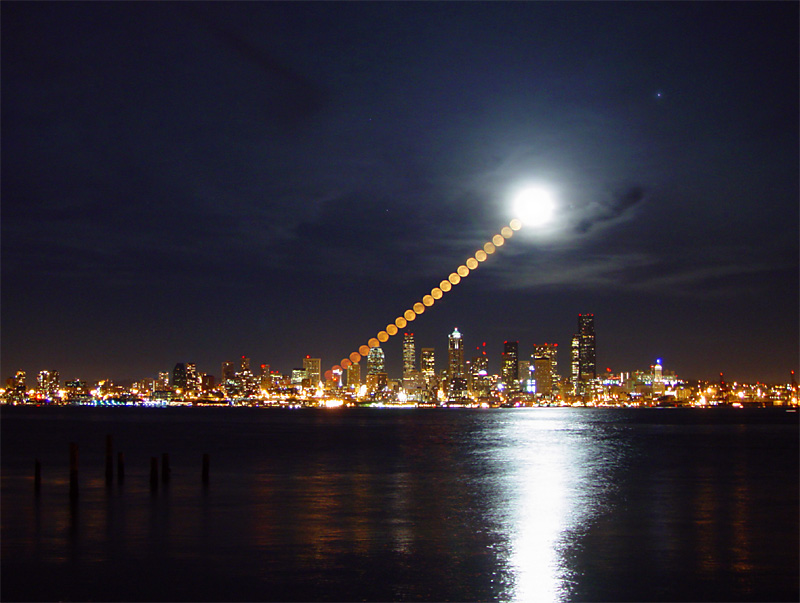The search for meaning in the art and entertainment we consume can be a frustrating one. Not only are there countless possible interpretations, but there are countless possible misinterpretations too. And the horrible/wonderful thing about it is that none of them can definitively said to be right or wrong. Even if the artist or creator has gone on record speaking in no uncertain terms about what the theme or moral of the story/song/painting is, one has to consider the possibility that revisionist history, self-mythologization, or garden variety ego may be at work.
I find it liberating to accept that you can never really know for sure what you are meant to take away from the experience of consuming (for lack of a better word) someone else's art. More than that, I believe you can never really know for sure what "The One True Interpretation" is of art that you yourself have created.
It should go without saying that all art is not created equal, and the spectrum of possible interpretations varies wildly from the Pretty Damn Obvious to the Pretty Damn Ambiguous, but I said it anyway.
I sometimes miss the spirited and free-form discussions that would sometimes pop up after a trip to the movies back in college. It's not necessarily that any of us knew what we were talking about, but more the "state your thesis and support it" mindset that most of us were in that fostered some lively deconstructions of what films like DO THE RIGHT THING, NAKED LUNCH, MY OWN PRIVATE IDAHO and, shit, even BASIC INSTINCT were really trying to say.
Back then I was more inclined to think in terms of "right" or "wrong" responses and interpretations, but now I've swung into the "there are no wrong answers" camp. There are no wrong answers, because the only message interpretation that matters is the individual's.
As much as we would like to believe that "universal truths" put our minds at ease by erasing those troubling gray areas, there are precious few universal interpretations and zillions of idiosyncratic ones.
This train of thought was boarded after watching TWO FOR THE ROAD (1967), a multifaceted and avant-garde (in the best and worst sense) exploration of marriage directed by Stanley Donen and featuring an Oscar-nominated script by Frederic Raphael.
Without going in to too much detail, the film revolves around a series of road trips made by married couple Audrey Hepburn and Albert Finney. The trips span the time from their first chance meeting to their bitter contemplation of divorce, and are shuffled together in nonlinear fashion à la PULP FICTION to maximize the effect of the reveals from each sequence. Side note: fans of WHEN HARRY MET SALLY will notice more than a few "inspirations" taken from ROAD.
The voice-over on the film's contemporary trailer featured on the DVD touted the couple as two lovers who "made something wonderful out of being alive!", but my interpretation was radically different.
Mrs. Word Player had a third read on the film's themes and messages, and quickly had a fourth when we pulled our yellowing copy of Baseline's MOVIE GUIDE off the shelf. I considered looking up the bios of Donen and Raphael to see if their personal histories would support or detract from my theory, but decided against it.
What the movie "meant" had already registered, and despite my affection for ROTTEN TOMATOES, no canvas of the critical response was going to appreciably change how I felt.
Does TWO FOR THE ROAD have something compelling to say about marriage in general? About marriage in the 1960s? About Frederic Raphael's views on marriage? About the marriage that evolved organically after the creation of these two characters? About what Hollywood thinks about marriage? Would we feel differently about the outcome of the marriage if the wife had been played by Judy Dench instead of Audrey Hepburn? Is it empty of thematic value at all, being just a movie meant strictly to entertain and titillate by any means necessary?
What is the "message" of ROMEO AND JULIET? I would wager that that play has "inspired" or "justified" more suicides than the combined lyrics of all heavy metal and rock songs combined, but would anyone consider adding a warning label to Shakespeare or not teaching the play to kids Romeo's age?
The truth hurts. Life is complicated. Motives are murky.
or
The truth will set you free. Life is simple. Motives are transparent.
It's all relative.
Or is it?
5 days ago







No comments:
Post a Comment